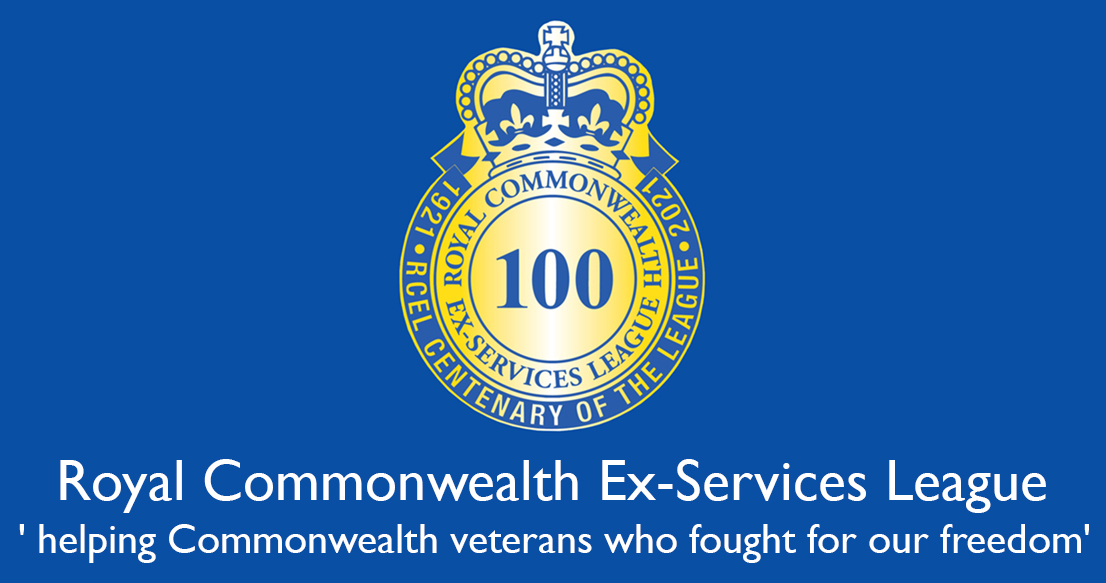
Report of the Chairman of the Standing Committee on Welfare Programmes
Brigadier John King MBE - 2014
Sepoy Fakhruddin joined the British Indian Army on 21 March 1942 at the age of 17 years and worked in the Motor Transport section of the 13th Lancers. He served in Calcutta, Italy and Singapore. He was captured by the Japanese and served for a short time as a POW. He says that many POW Indian Army soldiers died at Hiroshima when the atom bomb was dropped. In 1947 he joined the Pakistan Armed Forces before being discharged in 1959 but called up for service during the 2 wars against India in 1965 and 1971. He says he had the honour of guarding Mountbatten, Viceroy of India, on 14th August 1947 during a visit. He never married and his parents and siblings were killed in the 1947 partition riots so has no relations to look after him. He lives in destitution in the Sultanabad slums and is kept alive with a meal a day from RCEL and a small pension from the Pakistan Armed Forces Board which provides for a small room, giving him a roof over his head.
Sepoy Fakhruddin is just one of the 11,671 ex-servicemen, women and widows that we assisted in 2014; this is a 4% overall reduction in relation to the numbers supported directly by RCEL funds and our Agency work (disbursed on behalf of other charities) in 2013. However, we have seen an increase in the number of RCEL SCOWP beneficiaries as a result of more accurate information and data from Burma and improved transportation in Malawi where an additional 70 veterans have been identified. Our global distribution last year exceeded £1.74M; this included over £817k distributed on behalf of other military charities as Agency work; an increase of over 6% compared to 2013 which is a trend we are seeing year on year. The Royal Canadian Legion supported a further 14 Caribbean member organisations with £125,100 in similar welfare, medical and administrative support; this generous support enables RCEL to focus our welfare support to other parts of the World. We are also very grateful to the Returned and Services League of Australia who distributed over £25,000 directly to expatriate Commonwealth and British ex-servicemen and women.
Each year I allocate funds to our SCOWP reserve which is to be utilised in the event of any unforeseen or emergency situations. In 2014 we were asked to provide support to our organisation in Sierra Leone as a result of the terrible situation created by the Ebola crisis. Unfortunately, we lost 5 World War 2 veterans to this dreadful disease but RCEL was able to immediately send financial support that provided essential supplies to our beneficiaries, particularly those who are living in isolated areas; we must also gratefully acknowledge the additional financial support provided by The Royal British Legion and ABF The Soldiers’ Charity.
During the year, HQ staff visited 10 member organisations around the World; these visits are detailed elsewhere within this report. These visits are extremely important in allowing my committee to be fully informed when making grant allocation decisions at our annual meeting in April and at year end reviews. It is reassuring to have accurate on-the-ground information, particularly when considering requests for specific projects. One such project was a request from the Sri Lanka Ex-Serviceman’s Association to provide support for the renovation of the Bolagala Home near Colombo. Controller Finance, Colonel Nigel Dransfield, visited Sri Lanka in July and went to the Home which exists to care for elderly veterans and is currently occupied by 25; 8 of those 25 are RCEL beneficiaries and a grant of £3,333 was awarded which amounted to a third of the cost of renovation. The Controller Welfare’s visit to the Caribbean in January also included attendance at the Royal Canadian Legion Conference held in Barbados which was attended by the majority of Caribbean organisations to discuss welfare issues and the Future Roles study.
I would like to acknowledge yet again the tremendous support that has been provided by Blind Veterans UK. In 2014 they provided support to 302 veterans in a number of our countries including Burma, Cameroon, India, Somaliland and Uganda, to name a few.
There is little change with the situation in Zimbabwe and RCEL continues to support over 350 Rhodesian African Rifles veterans who benefit from grants totalling £52,000 which are distributed through the good offices of ZANE. In addition, this wonderful organisation also disbursed over £264,000 as part of our Agency work on behalf of 27 UK charities. A poignant reminder of the Zimbabwe cases we deal with is included within this report.
Burma has been in focus recently and a more detailed report will be included next year. However, we are seeing an increase in the number of eligible beneficiaries in that country which is as a result of improved co-ordination and communication in-country, plus the assistance provided by Help 4 Forgotten Allies (H4FA) and the British Embassy. An interesting statistic has emerged from our work in this country that focusses the mind and demonstrates what can be achieved; the UN World Food Programme has identified the average amount of rice required per person per month; that is 7kg or 84kg per year. The price of rice is approximately US$25 per 50kg; therefore, a minimum annual income of US$42 is required to provide a very basic ‘meal a day’. RCEL are able to provide an annual grant of US$70 to our veterans, thus covering the cost of a meal a day at the moment. However, the cost of living is escalating and will no doubt reach a level, as it has done in all our other countries, when we are unable to cover that basic cost.
For RCEL to continue to provide financial support to our veterans and widows in the future and, something that is as equally important, some dignity in their later lives, we need the continued support from all of you; those large organisations who have provided so much regular support in the past and the individual donors who so generously give to those who are in desperate need. Your continued support is critical.
A Tale from Zimbabwe – Doug Dabbs 1922 – 2015
Our representative in Zimbabwe reported the sad news of the death of Doug Dabbs at the age of 92; he had been known to RCEL for many years and featured in our Annual Report in 2012. This is his story and highlights the debt of gratitude that we owe our veterans:
Doug was born in Kent in September 1922, the son of a First World War RAF pilot. He was too young to join up at the outbreak of war but, when Churchill announced the formation of local defence volunteers, Doug borrowed a pistol from his father and signed up. As soon as he turned 18 he joined the RAF to train as a navigator. Unfortunately he suffered an attack of polio which put him in hospital for several weeks and meant he could not complete his induction into the RAF. Undeterred, he asked to be transferred to the army and after eight months of training was posted as a driver mechanic to 144th battalion of the Royal Armoured Corps.
In June 1944 Doug crossed the Channel on D+2 with the RAC, landed on Sword Beach and was immediately engaged in fighting around Caen. Soon afterwards, his tank was hit by a shell which penetrated the side and ricocheted around inside killing everyone on board except for Doug. He was soon back in the thick of things with the Royal Tank Regiment and was at the vanguard of the advance across France, Belgium and the Netherlands, finally crossing the Rhine in Spring 1945.
He still has his prayer book for the Service of Thanksgiving on VE Day – May 5th 1945 together with his medals, photographs and other memorabilia. Doug was demobbed in 1946 having continued to serve in Italy and Yugoslavia after the war had officially ended.
Back in England, Doug decided to move to Zambia to join his older brother who had bought a farm out there. Soon he married Val and had four children after moving to Zimbabwe and finally saving enough to buy his own sugar farm in the Lowveld which enabled him to raise and educate his children and make a good living.
In 2002 The Dabbs’ farm came under attack and they were forced to pack up at short notice and move into Harare. Fortunately, they had bought a flat in Mount Pleasant during the good times so had a place to live, but no income meant they went through their savings quickly.
In 2004 Doug applied to RCEL for assistance and the quarterly grants from the RAFBF and RAC War Memorial Benevolence Fund have been quite literally a life-saver for them. As this generation of men and women pass on, it is good for us to remember that many of the freedoms the Western World enjoys today are due in large part to the sacrifices made by them and it is right that we honour and care for them – they are a special group of people and we are privileged to have been able to hear their stories and be a channel for them to receive assistance.




Legal Notice - Contact Us
